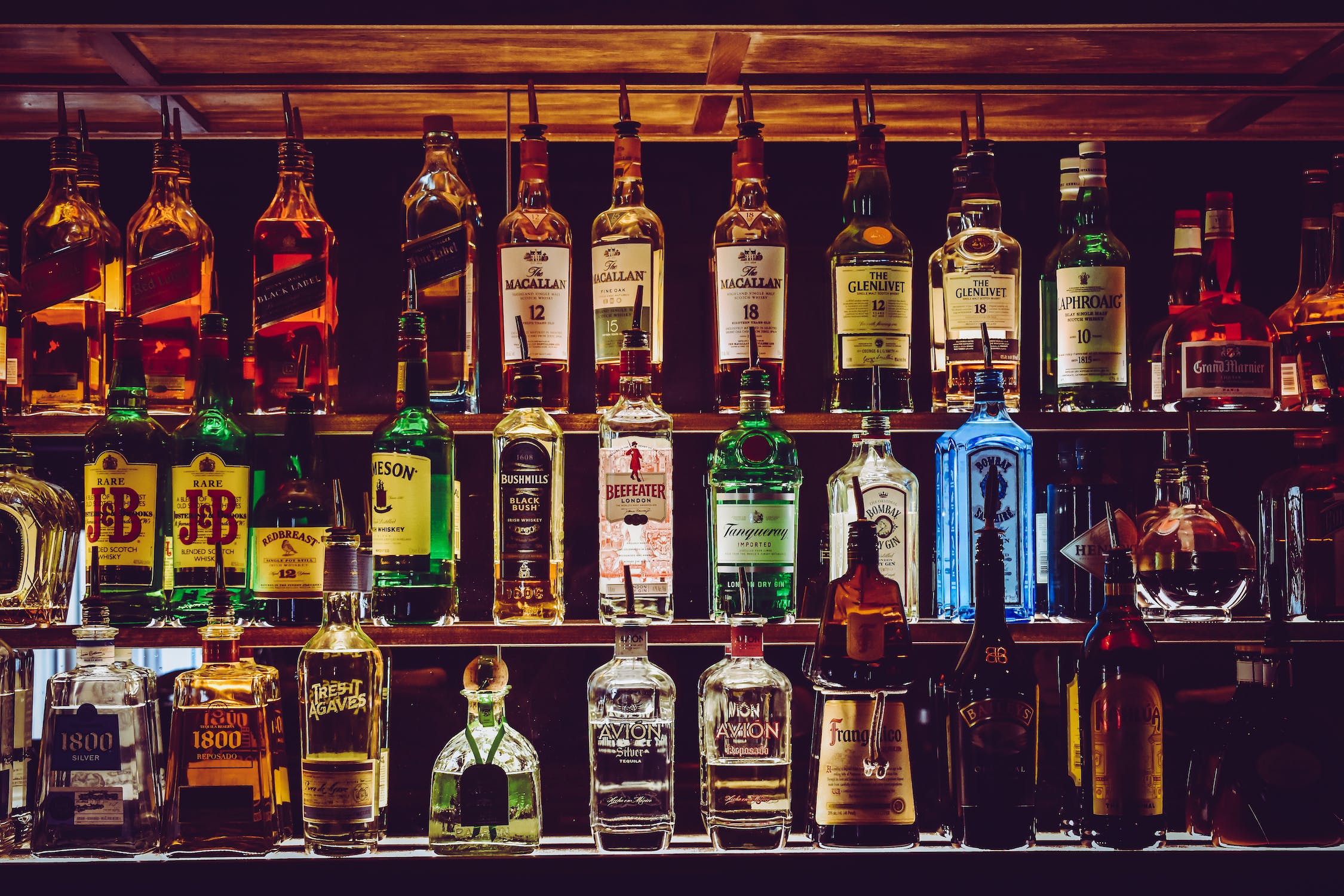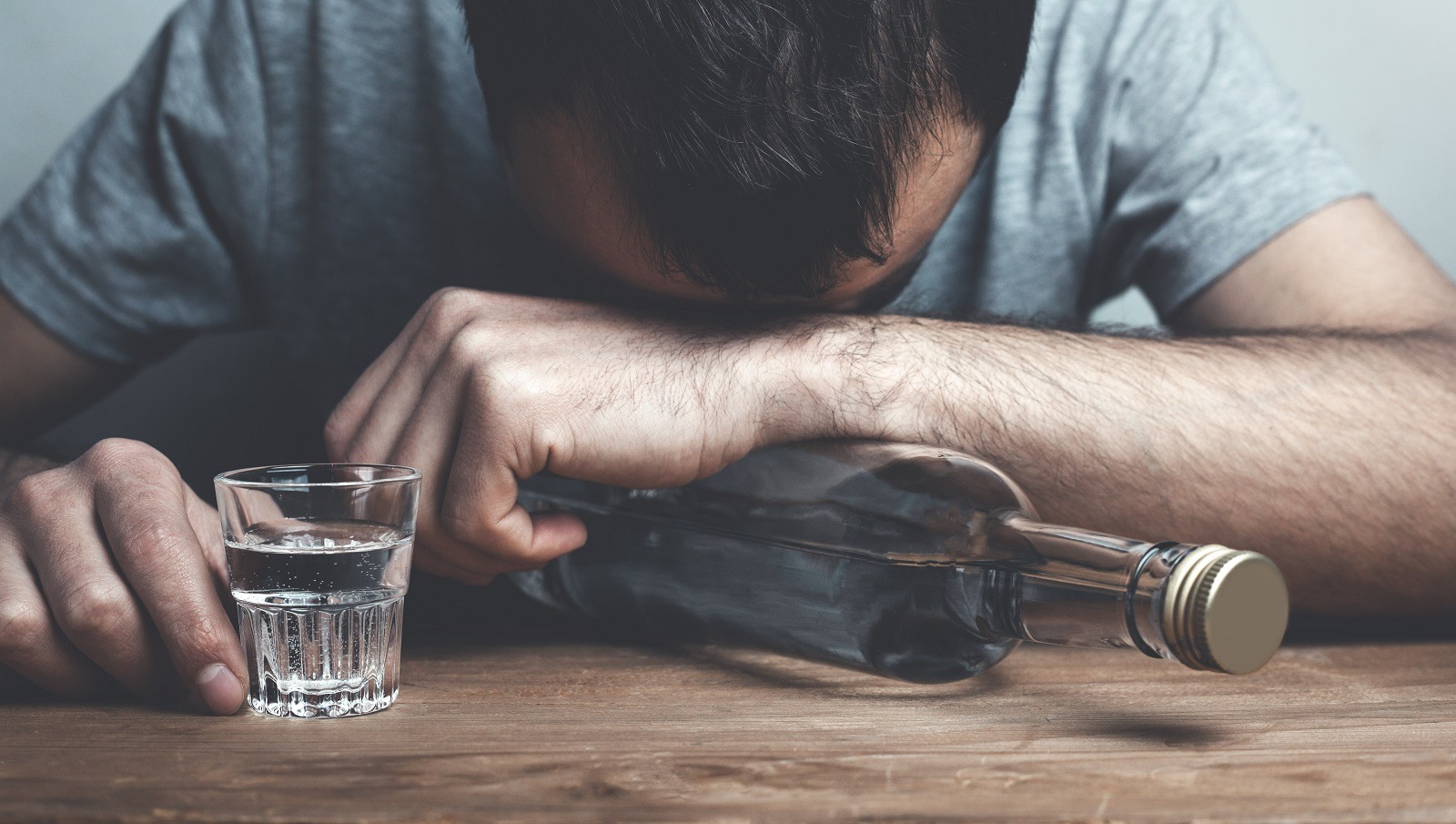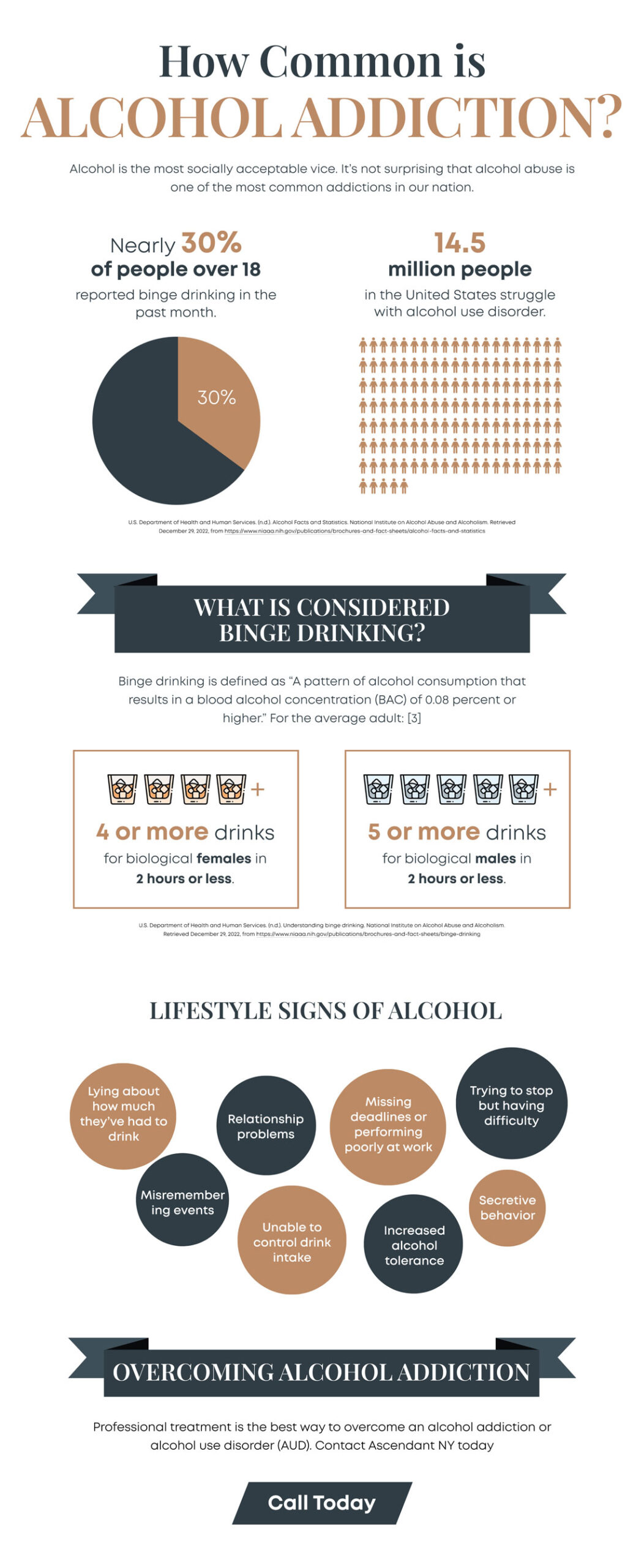Addiction | 8 min read
What is Alcohol? {Infographic}
Medically Reviewed By

On January 09, 2023
Written By
On January 9, 2023

Alcohol: Defined
Beer, wine, and liquor all contain ethanol, which causes intoxication. The fermentation of yeast, sugars, and starches results in the production of alcohol.
Alcohol is widely consumed and is largely considered a social activity. Because of this, alcohol is an addictive substance due to the feeling it gives the user. Many people experience “opening up” or letting loose when they drink, making it easier to talk to others or speak without filters.
Is Alcohol a Drug?
In short, yes, alcohol is a drug. Though it’s widely available and a normalized substance to drink on almost any occasion, alcohol can be incredibly addictive. [1] Alcohol is also classified as a central nervous system depressant.
Because alcohol drinking has become so commonplace, some people wrongly believe it is not a drug. Another reason is that the expression “drugs and alcohol” has become normalized, which misrepresents the fact that alcohol is a drug in and of itself. To make it apparent that alcohol is a drug, some special interest organizations have even advocated for the term “drugs and alcohol” to be changed to “alcohol and other drugs.”
Is Alcohol a Depressant?
Since alcohol is a depressant, the effects of it on neural activity within the brain, as well as other bodily processes, are impacted. [2] Consequently, gamma-aminobutyric, or GABA, an inhibitory neurotransmitter, is produced more frequently. Depressant effects begin when a person consumes more alcohol than their body can handle.
When considering how much a person can safely drink, it’s important to consider alcohol by volume. Alcohol by volume (ABV) is a unit of measurement used to assess the level of alcohol in a beverage. Depending on age, body shape, and other factors, how much you drink determines how much and how quickly you become intoxicated.
How Common is Alcohol Addiction?
Alcohol is one of the most common addictions because of its availability and social status attached to the substance.
According to the 2019 National Survey on Drug Use, nearly 30% of people over 18 reported binge drinking in the past month [3]. In addition, the same survey calculated that 14.5 million people in the United States alone are struggling with alcohol use disorder.
At times, it can be difficult to spot if someone is experiencing alcohol addiction or see the signs of alcoholism. In the case that a person is exhibiting signs of alcoholism, you may notice one or more of the following:
-
- Lying about how much they’ve had to drink
- Misremembering events
- Relationship problems
- Unable to stop after just one or two drinks
- Missing deadlines or performing poorly at work
- Notice an uptick in alcohol tolerance
- Trying to stop but having difficulty
- Secretive behavior
Does Insurance Cover Alcohol Rehab?
Depending on your circumstances and insurance plans, insurance sometimes covers alcohol rehab. For a more definitive answer, read through your policy for specific answers to your questions and get in touch with an insurance rep if you have more.
What is Alcohol? Frequently Asked Questions About Alcohol
Alcohol is the go-to drink to relax, party, and socialize, and the all-around drug of choice in the U.S. Alcohol can become highly addictive. Here are some frequently asked questions about alcohol and their answers:
Can Drinking Too Much Alcohol Kill You?
Too much alcohol too quickly can lead to alcohol poisoning and have deadly consequences. Alcohol poisoning is a serious and occasionally fatal side effect of alcohol binging. Excessive alcohol consumption can cause problems with your breathing, heart rate, body temperature, gag reflex, and possibly a coma and even death.
In other cases, mixing alcohol with medicines may also have lethal consequences. When certain drugs are taken with alcohol, these side effects can include headaches, dizziness, fainting, and loss of coordination. Additionally, it can increase your risk of experiencing internal bleeding, cardiac issues, and breathing difficulties.
Is Alcohol Addictive?
Like other drugs, alcohol has a potent effect on the brain that causes pleasure feelings while dampening unpleasant ones. These emotions may drive some people to continue drinking alcohol despite potential consequences to their health and well-being.
For instance, research demonstrates that drinking to deal with stress over time tends to amplify unpleasant emotional states in between episodes of drinking, even while it may temporarily relieve emotional discomfort. These alterations may encourage more drinking and result in a person getting caught in an unhealthful cycle of alcohol use.
What does alcohol do to the body?
Drinking alcohol frequently can wreak havoc on the body. Alcohol is typically a waste substance that the body strives to eliminate. Alcohol impacts the body’s processes, even in small amounts.
When you consume more alcohol than your body can handle, your blood alcohol level rises and is spread throughout your body, which causes you to feel drunk. The body’s nerve endings may be impacted by this distribution, which could also impede brain activity. Feelings of anticipation, numbness, or inhibition result from this.
What Organs Do Alcohol Damage?
Numerous body organs will suffer from years of heavy alcohol consumption, and organ damage may result. The brain and neurological system, heart, liver, and pancreas are among the organs known to suffer harm from long-term alcohol abuse.
In addition to raising your blood pressure and cholesterol levels, both significant risk factors for heart attacks and strokes, heavy drinking can also cause these conditions.
Chronic alcohol abuse can erode your immune system, leaving you more prone to life-threatening illnesses. Additionally, it can weaken your bones, increasing your chance of breaking or fracturing bones.
What Happens When You Stop Drinking?
Stopping drinking benefits your body and will help bring your body back to a healthy form. A few benefits include the following:
Improved Sleep
To some, it may be a surprise that drinking a lot of alcohol impacts sleep. You may experience insomnia or the inability to wake up in the morning due to alcohol. Quitting drinking helps to regulate your sleep cycle.
Increased Hydration
Alcohol needs a lot of water to balance out its effect. Most of the time, heavy drinkers aren’t consuming enough water to keep up with the demand. Quitting drinking tends to inspire more water intake.
Money Saved
Alcoholism is an expensive habit. When you stop drinking, your wallet will thank you.
Improve Acid Reflux
Because alcohol irritates the stomach lining, you will also notice a decrease in symptoms like acid reflux, when stomach acid burns your throat, after a fortnight.
Better Skin
Alcohol abstinence will improve your moisture levels, which will benefit your skin. You may have skin that looks more moisturized and has less dandruff and eczema since more water will have been absorbed rather than wasted.
Liver Repair
The liver is the only organ capable of self-repair and regeneration, which is fantastic news. Because the liver is constantly regenerating, the healing process frequently starts just a few weeks after giving up alcohol.
Better Memory
Alcohol has been shown to impair your brain’s memory center. When you quit drinking, your memory will improve.
Your Mood Will Stabilize
Alcohol is known to cause mood swings and agitation. When you stop drinking, you have more energy leading to increased productivity and elevated feelings of happiness.
What Happens if You Drink Alcohol While Pregnant?
While a doctor approves one glass of red wine per day for pregnant women, any more than that should be avoided at all costs. Drinking alcohol while pregnant is detrimental to your and your baby’s health.
Drinking alcohol when pregnant affects the unborn child since it enters the mother’s system. In addition, fetal alcohol spectrum disorder (FASD) like fetal alcohol syndrome (FAS), a dangerous illness that can have long-term effects on a child, can result from alcohol consumption during pregnancy. Other health consequences of alcohol consumption during pregnancy include miscarriage, early birth, and low birth weight.
If your child develops FASD, they will experience problems related to:
- Learning
- Behavior
- Organs, joints, bones
- Regulation of emotions
- Impulse control
- Hyperactivity
- Speech problems
- Social skills
The consequences of drinking during pregnancy outweigh any benefit to doing so.
How Does Alcohol Change the Brain?
Alcohol impacts the brain because it causes problems with walking, blurred vision, slurred speech, slower reaction times, and poor memory. Some of these impairments become apparent after just one or two drinks and disappear fast after drinking is discontinued.
On the other hand, a person who consumes large amounts of alcohol over an extended period may experience brain deficiencies that last even after achieving sobriety. Current alcohol research focuses on the precise mechanisms by which alcohol alters the brain and the possibility of reversing the effects of heavy drinking.
Alcohol can change how the brain functions and looks by interfering with the brain’s communication networks. Alcohol impairs the function of the brain regions in charge of:
- Balance
- Memory
- Speech
- Judgment
- Coordination
- Movement
It increases the risk of accidents and other unfavorable outcomes.
Can Your Body Return to “Normal” After Stopping Alcohol?
Your body can start to recover from the effects of alcohol over time, and you can anticipate a healthier heart and cardiovascular system, lowered risk of cancer, and fewer diseases due to a strengthened immune system.
If you stop drinking, your liver is the only organ capable of complete regeneration. The liver receives all the blood that exits the intestines and stomach. This blood is processed by the liver, which also breaks down, balances, and produces nutrients. It also metabolizes medications to make them more easily absorbed by the body.
Is Any Amount of Alcohol Safe?
Drinking in moderation is generally safe. However, only do so if you have a designated driver when drinking outside the home and with people you trust. Alternatively, you can opt to drink zero-proof alcohol. Zero-proof alcohol is available in wine, champagne, spirits, and beer. It contains no alcohol whatsoever and tastes like the real deal.
What is a “high-functioning alcoholic?”
High-functioning alcoholics who are not officially recognized as such by a doctor do not have the typical traits of someone dealing with an alcohol use disorder.
High-functioning alcoholics can prevent their alcoholism from interfering with their commitments in the workplace. Although they may seem to have their life together, they probably struggle with strong alcohol cravings and have made numerous failed attempts to give up drinking.
Lawyers, doctors, and professors are careers with many “high-functioning alcoholics.”
What drugs are usually mixed with alcohol?
You must never combine alcohol with drugs without visiting a doctor because their interactions might be harmful. You may need assistance if you are taking a prescription yet find it difficult to give up alcohol to take it. If you are struggling, find a rehab center right away that can assist you in overcoming an alcohol use disorder.
Alcohol can be dangerous or even deadly when mixed with:
- Adderall
- Cocaine
- Marijuana
- Antidepressants
- Antibiotics
- Antihistamines
- Energy Drinks
- Ecstasy
- Psilocybin
- LSD
- Opioids
- Meth
- Benzodiazepines
What kind of drinking patterns signal alcohol addiction?
Alcoholism is the condition in which a person no longer has reliable control over alcohol consumption. It doesn’t matter what kind or even how much alcohol someone consumes: People with alcoholism frequently find it difficult to stop drinking once they get started.
A person struggling with alcohol addiction may have a drink as soon as they wake up and continue to drink throughout the day. They may mix alcohol with their coffee or sneak sips throughout the workday. A person with AUD might miss important events or ignore responsibilities in favor of drinking.
Other patterns include drinking on weeknights and binge drinking during the weekend.
What is considered binge drinking?
Binge drinking is defined by the National Institute on Alcohol Abuse and Alcoholism as a pattern of alcohol consumption that results in a blood alcohol concentration (BAC) of 0.08 percent, or 0.08 grams of alcohol per deciliter, or higher. This pattern of alcohol abuse for an average adult is defined as 4 or more drinks (for females) or 5 or more drinks (for males) in roughly 2 hours [4].
Why is binge drinking dangerous?
Binge drinking is considered incredibly risky behavior. It lowers inhibitions and is known to have dangerous consequences. Some risks include:
- Driving drunk
- Unintentional injuries
- Overconfidence in one’s abilities
- Burns
- Falls
- Alcohol poisoning
- Violence
- Homicide
- Sexual assault
- Suicide
- Intimate partner violence
- Domestic Violence
Experiencing Signs of an Alcohol Addiction? It’s Never Too Late to Get Help.
You don’t have to face recovery on your own. Our compassionate medical specialists are ready to support you while you manage your alcohol use disorder with respect and compassion. If you or a loved one suffers from alcoholism, contact us to get your life back on track.
Sources:
- Nehring, S.M., Freeman, A.M. National Library of Medicine. (2022, July 31). Alcohol use disorder. Retrieved from https://www.ncbi.nlm.nih.gov/books/NBK436003/ on 2022, December 29
- Costardi, J.V.V., Nampo, R.A.T., Silva, G.L., Ribeiro, M.A.F., Stella, H.J., Stella, M.B., Malheiros, S.V.P. National Library of Medicine (2015, August). A review on alcohol: from the central action mechanism to chemical dependency. Retrieved from https://pubmed.ncbi.nlm.nih.gov/26466222/ on 2022, December 29
- National Institute on Alcohol Abuse and Alcoholism (n.d.). Alcohol facts and statistics. Retrieved from https://www.niaaa.nih.gov/alcohols-effects-health/alcohol-topics/alcohol-facts-and-statistics on 2022, December 29
- National Institute on Alcohol Abuse and Alcoholism. (n.d.). Understanding binge drinking. Retrieved from https://www.niaaa.nih.gov/publications/brochures-and-fact-sheets/binge-drinking on 2022,December 29
Ascendant New York Editorial Guidelines
Here at Ascendant New York, we understand the importance of having access to accurate medical information you can trust, especially when you or a loved one is suffering from addiction. Find out more on our policy.






